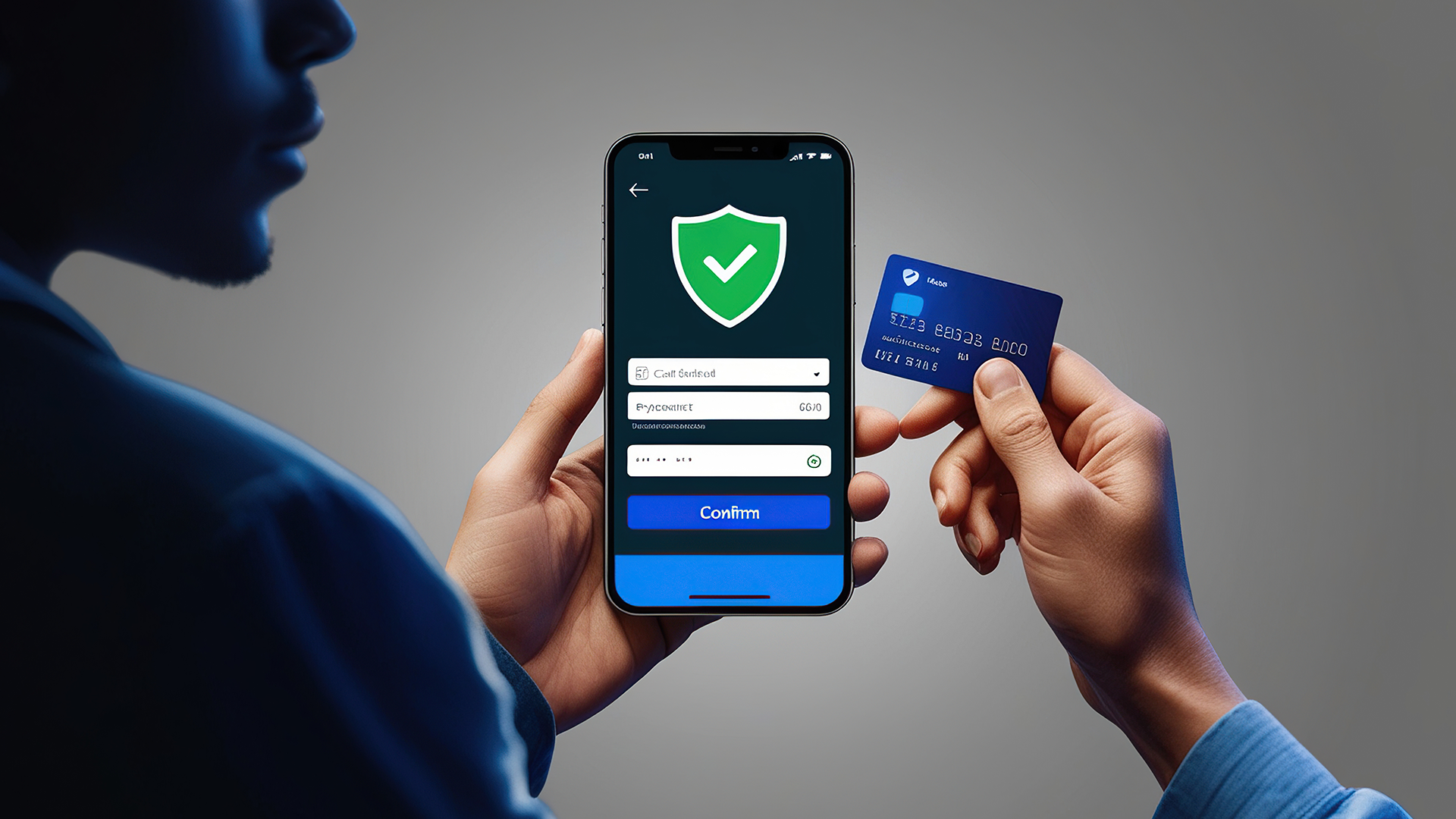
Thank you
Our team of industry domain experts combined with our guaranteed SLAs, our world class technology .


Get Immediate Help
Cross-border transactions have increased in recent years as the world has become more open to business. According to the Bank of England, around $250 trillion worth of cross-border payments are projected to happen by 2027, contributing significantly to the global economy.
This has also increased the demand for secure payment services as cyberattacks are targeting cross-border transactions. Their motive is not just money but also the sensitive data of customers and businesses, raising data privacy concerns.
Organisations must, therefore, use strong security measures to prevent these attacks.
Cybersecurity-as-a-Service (CSaaS) helps here by offering an all-inclusive cybersecurity solution to organisations to defend their IT infrastructure and secure cross-border payments.

Securing cross-border payments is challenging because of the following factors:
Cross-border transactions involve multiple currencies, laws, and financial organisations, increasing the complexity of managing them. One error could transform into a big problem and trigger digital payment security risks.
For example, suppose a secure payment processing solution provider delays updating one of its critical applications. An attacker hunting for vulnerabilities identifies one in the system and exploits it to gain access to it. Next, the attacker could easily perform unauthorised money transfers.
Today, financial frauds have increased in number, harming businesses and individuals. In 2024’s first half alone, cybercriminals stole more than £570 million in payment fraud. Attackers employ various tactics to defraud people, such as:
This is why using stronger security measures is in demand to prevent international payment fraud and secure payment processing.
In cross-border payments, financial as well as personal data is shared internationally. This raises data privacy risks as to how user data is stored, secured, and shared across multiple jurisdictions. Authorities, such as the Financial Action Task Force (FATF) are set up to guide financial organisations on how to protect user data. However, their implementation is affected by more and more development and use of digital financial solutions.
This requires effective customer due diligence (CDD), the absence of which is concerning for consumers, financial service providers, and banking systems. It could lead to security threats, such as data breaches, money laundering, and non-compliance compliance penalties.
In 2019, a data breach on the First American Corp site compromised over 885 million personal and financial data, such as names, phone numbers, and email addresses.
Financial organisations use a variety of third-party tools, such as payment gateways, international payment solutions, accounting tools, etc., to achieve more efficiency in their processes. Although using tools and technologies are beneficial, they do pose security risks. You don’t have any control over how they are using customer data and what security controls they have in place. It’s also unclear how well they are adhering to applicable security and privacy guidelines.
Vulnerabilities in third-party systems could expose your data to attackers and sabotage your organisation’s security.
Financial service providers often face difficulties in managing cross-border payment compliance processes since requirements differ across various regions and jurisdictions. In addition, laws and regulations keep on changing, making it even more challenging to track and comply with them.
For example, there’s a difference between EU GDPR and UK GDPR. If you’re operating within the UK, you must comply with the UK GDPR and not EU GDPR. The latter applies to Europe, excluding the UK. Similarly, in regions, such as Saudi Arabia, organisations need to follow SAMA compliance. These changing laws increase complexities.
Errors in meeting compliance requirements could put your organisation under heavy scrutiny by authorities. You may face legal troubles and penalties, costing significant money. This requires you to standardise and manage compliance requirements with the help of a solid framework.
Securing global transactions is challenging because it involves various stakeholders, such as financial service providers, banks, merchants, payment processors, etc. Each stakeholder has different kinds of assets and security and privacy measures in place. More systems mean a wider attack surface. If an attacker identifies and exploits a vulnerability in a system associated with any of these entities, it would affect the entire network.
This needs greater accountability from all the members and a commitment to secure their systems and processes to reduce the attack surface and chances of cyberattacks.
.png)
Cybersecurity-as-a-Service (CSaaS) is a type of cybersecurity service that an organisation outsources to a service provider to manage and improve its security posture.
This means that instead of managing security in-house, you can work with a cybersecurity service provider with the required expertise, resources, and capabilities to manage your digital security and protect your organisation from cyberattacks. Much like other anything-as-a-service (XaaS) models, you just need to pay a subscription fee or use the service based on the pay-per-use model, without making costly investments.
CSaaS includes services such as:

Let’s talk about some benefits of using CSaaS for cross-border payments:
There’s hardly any sector untouched by cyberattacks. As the days pass by, these attacks are becoming more fierce with new technologies developing. That’s why organisations need stronger prevention mechanisms to secure online transactions.
CSaaS providers use the latest technologies, such as AI detection, advanced monitoring systems, etc. to identify vulnerabilities in payment systems and resolve them before an attack finds them. If an attack happens, they have the capability and a well-coordinated team to fight it.
Not every organisation has the resources and expertise to manage emerging cyber threats. While larger organisations have sufficient budgets to set up an in-house cybersecurity team, it could consume significant time and effort. Not to mention, the industry is already dealing with a lack of skills and attacks are becoming more sophisticated. And for smaller and medium businesses, it’s even more difficult since they have limited budgets and are mostly targeted.
That’s where CSaaS comes in. You can get it from a reliable provider at a fraction of the cost and protect your organisation from attacks. This requires you to pay a subscription fee or go for a pay-per-use model. These pricing models are suitable for all businesses, whether you are a small or medium business or an enterprise. This way, you can avoid costly investments, such as hiring security experts, buying security tools, maintaining your security infrastructure, and training employees.
When your business grows, you add more operations, workflows, and tools to your workflows. This further expands your attack surface and needs better protection. If you have an in-house cybersecurity team, you need to invest significantly in scaling your security infrastructure again. This is also time-consuming.
With CSaaS, you can easily scale up or down your services based on your organisation’s current security needs. You may convey this to your service provider and choose a plan that better fits your requirements.
For example, you are a financial service provider who has recently acquired a company. This added more people, processes, and technologies, which need security. With CSaaS, you can request expertise and resources from the service provider to manage new security challenges, such as transaction failures, access permissions, etc., and protect each entity in your organisation.
Hiring full-time security experts comes with certain limitations. They may not be available 24/7 to secure your organisation. If your security lead is absent due to any reason and an attack occurs, chances are the entire security team may panic.
This is not the issue with CSaaS. The service provider will dedicate experts and resources to you 24/7 no matter when an attack strikes your perimeter. They will create a solid plan to respond to and mitigate the attack. In addition, they will monitor your payment systems and processes continuously to detect vulnerabilities and threats in cross-border payments.
Another limitation of an in-house team is that you get limited skills and expertise from the people you hire. Although they could be trained to add more skills to their profiles, this is a time-consuming process. But if you need certain expertise in real-time and your team is not skilled at it, you may lag behind in your security efforts.
With CSaaS, you will get access to a team of cybersecurity experts with various skills and expertise. They too keep on adding more skills to fight with advancing threats. So, if you face a security issue with global payments, they will help you address it in no time.
Data privacy laws are becoming more strict due to increasing data leaks and exposures. Financial service providers must ensure compliance with these laws and standards, or else they could face penalties and legal issues. Also, these requirements keep on changing and differ for different regions and countries, making it difficult for organisations to track and manage them.
CSaaS providers have compliance experts who keep a tab on compliance requirements for various regions. They ensure every requirement is met to avoid costly fines and reputational damage.

Unlike reactive tactics where you respond to an attack after it occurs, proactive threat intelligence is a proactive approach. Here, you actively seek vulnerabilities and threats in your systems and neutralise them before they convert into an attack.
CSaaS providers offer proactive threat intelligence using advanced AI solutions and behaviour analysis. This intel helps you update your threat database and formulate ways to address these security threats.
According to a report, the use of advanced security tools prevented £710 million in unauthorised fraud.
Financial service providers need powerful mechanisms to detect security loopholes and eliminate them. With CSaaS, you get efficient solutions for fraud detection in payments, such as AI-based solutions that can identify unusual patterns in transactions. As a result, you can modify your permissions, respond to threats faster, and get security tighter in vulnerable areas.
Data encryption secures your communications, ensuring only the intended person accesses the data. You get stronger encryptions with CSaaS to protect your payment data both during storage and in transit.
You must comply with the applicable regulations in the region or country you operate. This is difficult due to changing laws and regulations.
CSaaS helps you stay compliant with regulations, such as GDPR, PCI DSS, etc. Security experts track changes in compliance across various geographies, compare your current compliance posture, and improve your processes.
CSaaS providers offer continuous monitoring to spot security threats, risks, and attacks. On detecting one, it immediately notifies you so you can take suitable actions quickly before any harm comes to your organisation.
Cybersecurity-as-a-Service (CSaaS) is a complete solution for financial service providers to manage their cybersecurity activities and protect cross-border transactions.
We at Microminder CS offer a complete cybersecurity solution through a single platform to protect your organisation, systems, network, data, and transactions from threats, whether they originate externally or internally. Our CSaaS includes:
Don’t Let Cyber Attacks Ruin Your Business
Call
UK: +44 (0)20 3336 7200
KSA: +966 1351 81844
UAE: +971 454 01252
Contents
To keep up with innovation in IT & OT security, subscribe to our newsletter
Recent Posts
Penetration Testing | 10/11/2025
Cloud Security | 07/11/2025
Cybersecurity | 06/11/2025
What is a cross-border payment?
A cross-border payment is a financial transaction between two people or entities (a bank or a company) where the sender and the receiver are located in different countries.What are the risks of cross-border transactions?
Cross-border payments involve risks, such as cyber fraud, data privacy risks, money laundering, sanctions evasion, terrorist funding, non-compliance with laws and regulations and moreWhat are the security measures in international and cross-border financial transactions?
Security measures for global transactions are: Compliance with data privacy laws, such as CCPA, UK GDPR, and PCI DSS Anti-money laundering Transaction confirmation by the receiving bank